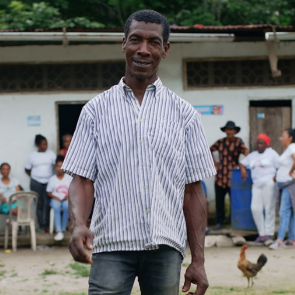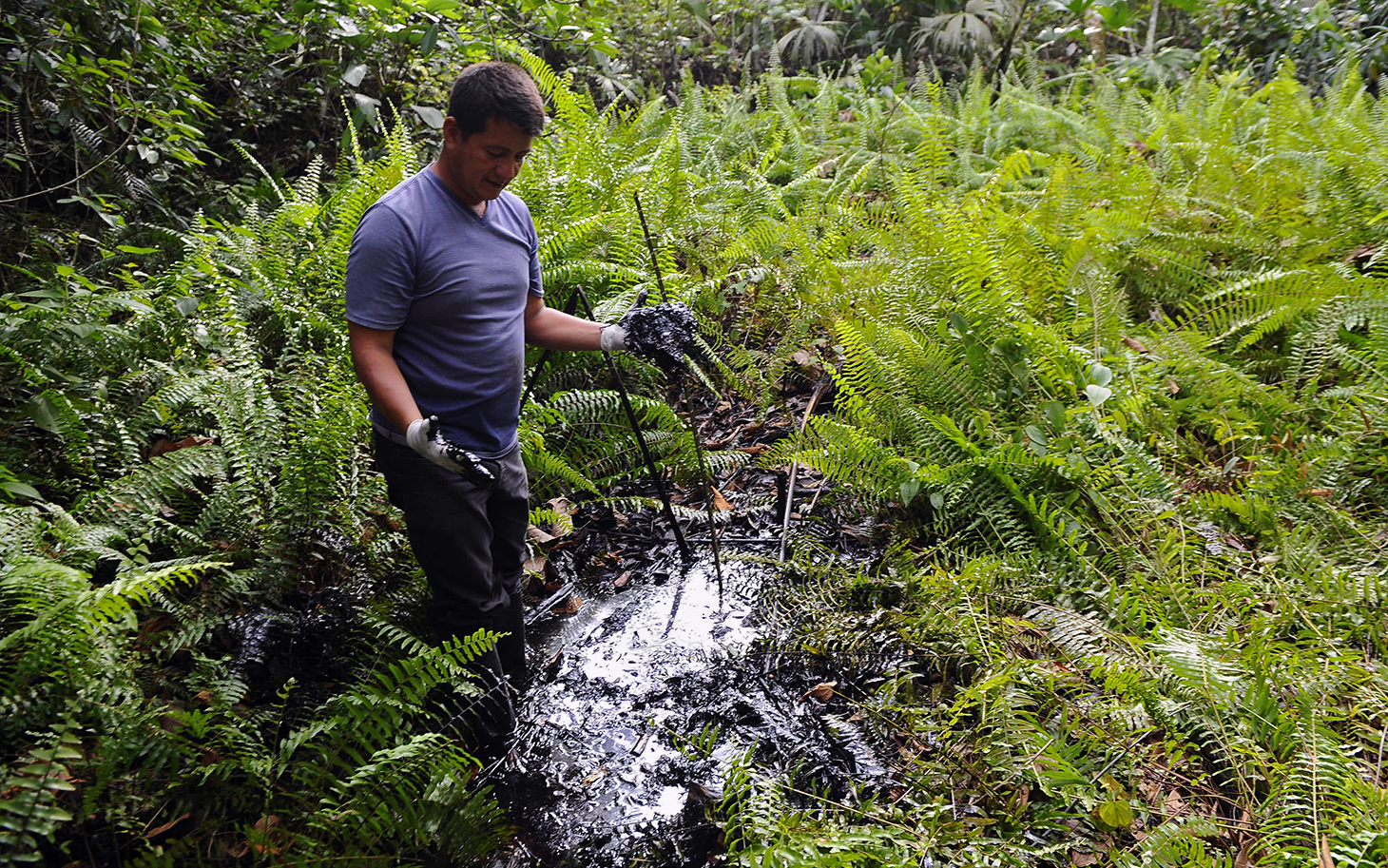
Segundo Ordóñez
The annual Front Line Defenders Award for Human Rights Defenders at Risk was established in 2005 to honour the work of HRDs who are courageously making outstanding contributions to the promotion and protection of the human rights of others, often at great personal risk to themselves.
Segundo Ordóñez is an Afro-descendant human rights defender from Esmeraldas, Ecuador. His family migrated from Tumaco, Colombia when he was a child. For most of his life in Ecuador, he lived and worked on abacá (Manila hemp) plantations with abacaleros (Manila-hemp worker), for the Japanese company ‘’Furukawa Plantaciones C. A’’ – a company which produces and exports abacá fibre. Abacá is used and exported to the US and Europe for paper money, rope, teabags, cars and more. Ecuador is the second largest exporter of abacá fibre, yet those who farm the raw materials have done so under slavery-like conditions.
Hundreds of families in the Esmeraldas area worked for this company and lived in camps on the company farms for generations; enduring conditions of poor pay, exploitation, lack of access to adequate basic services, education, healthcare and more. Abacaleros, including Segundo, united after years of discrimination, and took the company and the State of Ecuador to court, accusing them of plunging at least three generations of impoverished rural workers into conditions of modern slavery. With the support of the civil society solidarity committee “Furukawa Nunca Más”, constitutional and criminal proceedings were instituted against the company but so far they have not achieved justice or any type of reparation for the abacaleros.
When the case became public in 2019, the company retaliated and demolished most of the camps where the abacaleros and their families lived, evicting hundreds of people. This was done in part to hide damning evidence of the conditions in which Furukawa Plantaciones C. A kept its workers. A group of abacaleros, including Segundo, opposed the eviction and remained in three of the camps, an occupation that continues four years later. After facing new threats, the abacaleros, in defense of their collective rights, managed to obtain a precautionary measure preventing the company from entering the occupied camps.
Inspired by his bravery and ability to maintain community cohesion, Segundo became the representative of the ex workers group in legal proceedings, playing a key role in confronting the company in court and in public, which has also come at a risk to his life.
As a result of his resistance, he has been targeted in a number of ways ranging from consistent harassment, ‘’SLAPP’’ and other lawsuits filed by the company to intimidate and discredit him, and more recently, death threats. Moreover, having lost his job with the company and being victim of smear campaigns, he now struggles to find a new job in the region and access a fixed income. Nonetheless, he has persisted in the fight for justice and reparation for his community.

